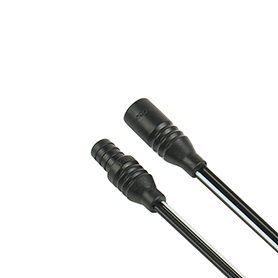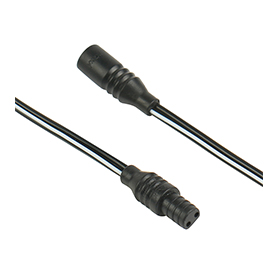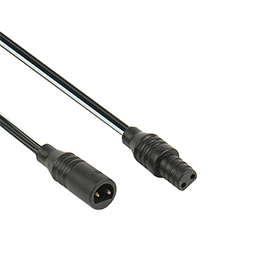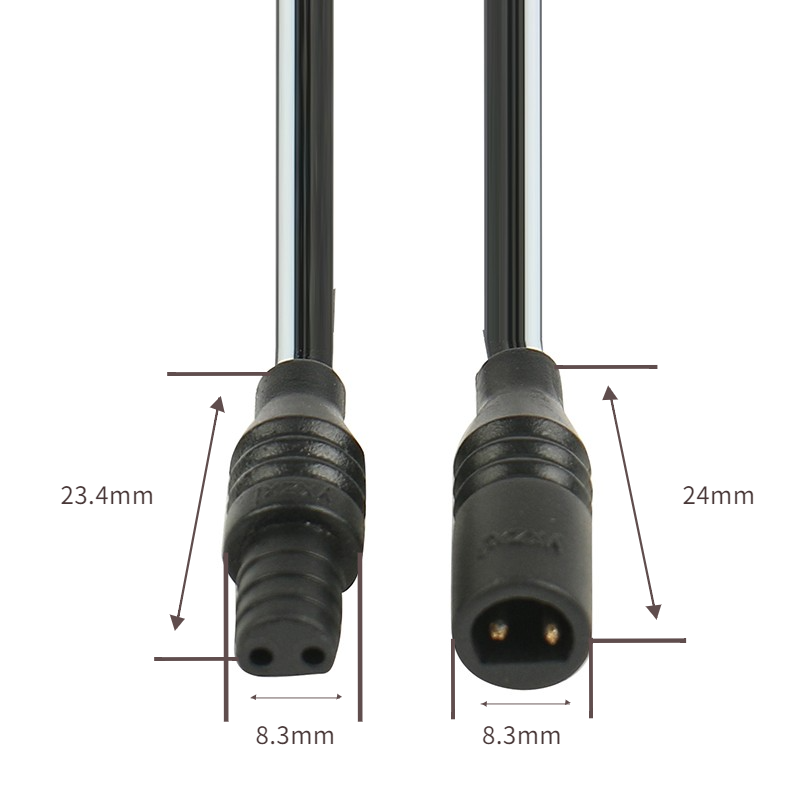News


News

FAQs About Waterproof Plugs for Automobiles – Expert Answers
Release time:2025-02-19
viewed:350
Waterproof plugs are critical components in modern automotive electrical systems, ensuring reliable performance in harsh environments. However, many car owners, mechanics, and manufacturers have questions about their capabilities, installation, and maintenance. In this article, we address the most frequently asked questions about waterproof plugs for automobiles and provide expert answers to help you make informed decisions.

Answer:
While IP67-rated waterproof plugs are designed to withstand temporary submersion in water (up to 1 meter for 30 minutes), they are not ideal for high-pressure car washes. Here’s why:
IP67 Limitations: High-pressure water jets can force water past the seals, especially around joints or cable entry points.
Recommended Rating: For car wash environments, use IP69K-rated plugs, which are specifically tested to resist high-pressure (80–100 bar) and high-temperature water jets.
Pro Tip: Always check the manufacturer’s specifications for pressure resistance. For example, a luxury car brand reduced wash-related electrical failures by 90% after switching to IP69K plugs.
Answer:
The maximum current a 16 AWG waterproof automotive plugcan handle depends on its design and materials. General guidelines:
Standard 16 AWG Plugs: Safely carry up to 10–15 amps in 12V systems.
High-Performance Plugs: With gold-plated contacts and enhanced cooling, some models can handle up to 20 amps.
Key Considerations:
Temperature: Current capacity decreases in high-temperature environments (e.g., engine bays).
Duty Cycle: Continuous vs. intermittent use affects performance.
Example: A 16 AWG plug powering LED headlights (5A load) will perform effortlessly, but using it for a high-power winch (20A) may require upgrading to 12 AWG.

Answer:
Grease and oil buildup can compromise the sealing performance of waterproof connectors. Follow these steps for safe cleaning:
Disconnect Power: Ensure the vehicle’s electrical system is off.
Wipe Excess Grease: Use a lint-free cloth to remove surface debris.
Clean Contacts: Apply isopropyl alcohol or a specialized electrical contact cleaner to a soft brush or cloth.
Rinse (if IP69K-rated): For heavily soiled plugs, rinse with low-pressure water and dry thoroughly.
Inspect Seals: Replace worn or damaged O-rings to maintain waterproofing.
Warning: Avoid abrasive tools or harsh chemicals (e.g., WD-40), which can degrade seals.
Answer:
Yes, most waterproof automotive plugs are designed for multiple uses, but their lifespan depends on:
Seal Integrity: Inspect O-rings and gaskets after each submersion.
Material Quality: Stainless steel contacts and UV-resistant housings last longer.
Maintenance: Regular cleaning and lubrication (with dielectric grease) extend usability.
Case Study: A fleet management company reused IP68 plugs for 5+ years with proper maintenance, saving 40% on replacement costs.
Answer:
Yes, with basic tools and precautions:
Tools Needed: Wire strippers, crimping tool, heat gun (for heat-shrink seals).
Steps:
1. Strip wires to the recommended length.
2. Crimp contacts securely.
3. Assemble the plug, ensuring seals are properly seated.
4. Test the connection with a multimeter.
Common Mistake: Over-tightening screws, which can deform seals.

Answer:
High-quality waterproof connectors function in temperatures as low as -40°C, provided they:
Use silicone seals (remains flexible in cold weather).
Avoid cheap plastics that become brittle.
Example: A delivery company operating in Arctic conditions reported zero plug failures after switching to cold-rated models.
Certifications like UL, CE, and IP ratings ensure:
Safety: Compliance with international electrical standards.
Durability: Rigorous testing for water, dust, and vibration resistance.
Warranty Protection: Many manufacturers void warranties for uncertified parts.

Waterproof plugs for automobiles are vital for ensuring the longevity and safety of your vehicle’s electrical systems. By choosing the right IP rating, maintaining connectors properly, and prioritizing certified products, you can avoid costly failures and downtime.
We at YCZXF specialize in high-performance waterproof connectors designed for automotive applications.Our products are rigorously tested to meet UL, CE, and IP standards, guaranteeing reliability in any environment.